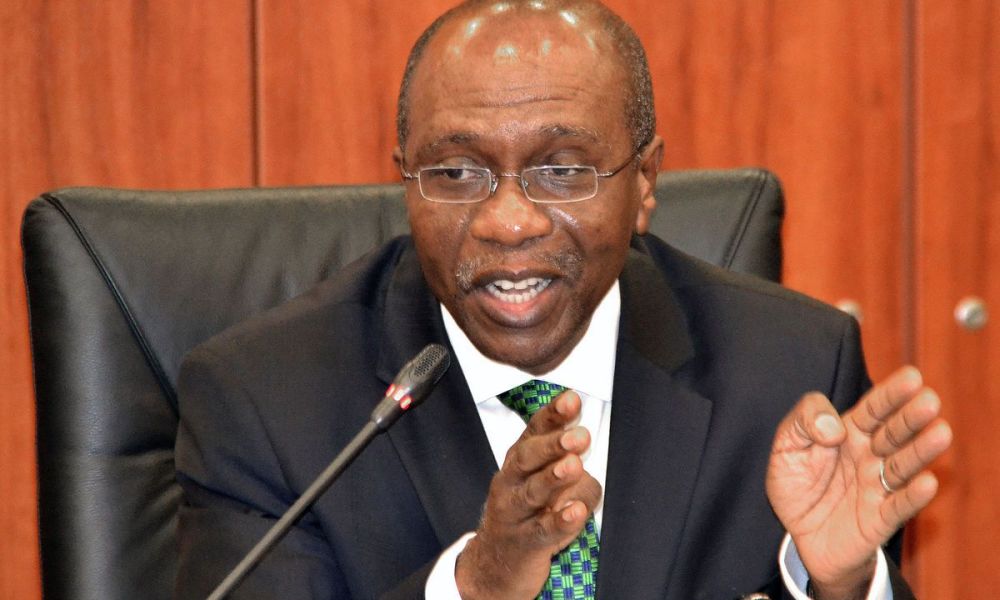Godwin Emefiele, governor of the Central Bank of Nigeria (CBN), at the weekend in Ogere, Ogun State, said efforts are ongoing to structurally rebalance and diversify the nation’s economy by supporting growth while leveraging digital finance tools.
Speaking at the 2019 Bankers Committee Retreat, as part of strategic reviews of critical developments in the Nigerian financial system, in particular, and the macroeconomy, in general, he said the tools will be deployed across key economic sectors like agriculture, manufacturing and the creative industries.
The CBN governor, who spoke on the retreat theme: “Delivering Inclusive Growth: Leveraging Digital Finance,” he defined digital finance as “the use of mobile phones, electronic cards, and the internet to facilitate the movement of funds between individuals, governments, and businesses.”
When properly deployed by banks and other financial institutions, he stressed that digital finance “could be used towards the development of savings, insurance and investment products for consumers.
“Additionally, it can provide Nigerians with a faster and more efficient payment service, as well as improved access to credit. Access to credit, in particular, is often recognized by small-holder farmers and MSMEs as a strong constraint to their expansion and growth.
“For the monetary policy authorities, improved access to finance for a majority of Nigerians through digital channels, enhances the efficacy of monetary policy actions, by aiding our ability to influence credit conditions in the economy. It could also enhance fiscal buffers by increasing tax revenues and minimizing waste in government intervention programmes,” he stressed.
The 36% of eligible Nigerians without access to formal financial services, often access financial services at an exorbitant price, acting as a huge deterrence to the growth of their businesses, but remain a huge opportunity through mobile channels. Most of this unbanked population resides in rural communities, that are less dense in population relative to urban communities, besides the high cost of maintaining bank branches generally.
With the nation’s 200m population, Emefiele cited a report by McKinsey and Company that improved access to finance and credit could bolster Nigeria’s GDP by about 10–12 percent by 2025. This, he said, is why there is a need for “supporting policy measures that improve access to finance and credit through digital channels is therefore imperative, as part of our efforts to boost Nigeria’s economic growth.”
The robustly increased usage of mobile phones by over 87% of Nigerians, he believes, can support financial transactions through USSD and mobile app channels, following which the CBN “has implemented policy measures that will enable underserved Nigerians access to finance and credit via mobile devices.
“Individuals are now able to open bank accounts and e-wallets from their mobile devices or through the internet. This alternative has resulted in a significant reduction in the cost of providing financial services, relative to the traditional brick and mortar system of opening accounts at bank branches. Customers are also able to save time and money by conducting transactions on mobile devices, relative to traveling to distant bank branches.”
Today, he continued, advancements in technology like “data analytics, cloud computing, artificial intelligence, and cybersecurity are also working to improve the speed, quality as well as security of financial transactions conducted through digital channels.”
Businesses now have better visibility on their income and expenses, while banks, credit bureaux and other financial institutions are also able to leverage these advanced tools in assessing the creditworthiness of customers, by analyzing income and payment patterns in e-wallets and bank accounts.
“These advancements are also helping to reduce the reliance on collaterals by some financial institutions when providing loans to their customers.”
In the same way, there is increased usage of digital finance tools to support the development of online platforms that enables farmers and SMEs to offer goods and services to their customers.
With the help of an efficient logistics system, he believes “safeguards can be put in place to authenticate buyers and sellers, as well as the quality of products being offered. Such platforms can support the growth of our farmers, small businesses and by extension financial institutions.
“Farmers, agro-processors, and MSMEs should be able to enter contracts with off-takers for the purchase of their produce without engaging in physical contact with the other party. Credit can then be provided on the back of such transactions to support the growth of our farmers and small businesses. This will ultimately lead to the expansion of their business activities as they will be in a better position to meet the needs of prospective customers.








